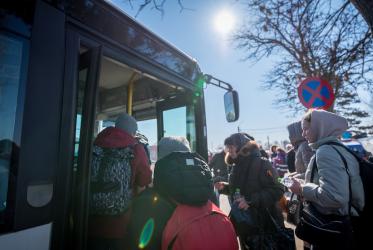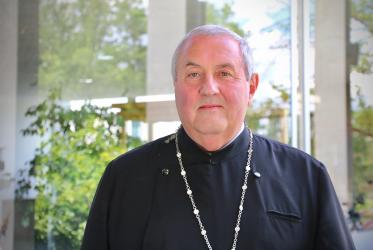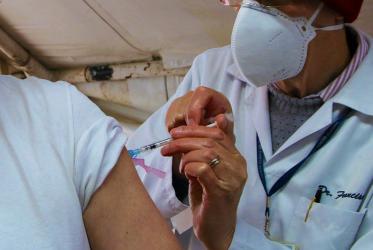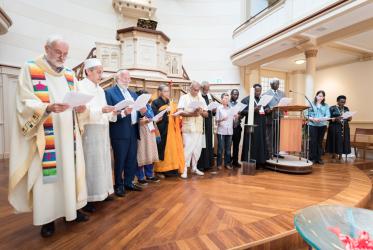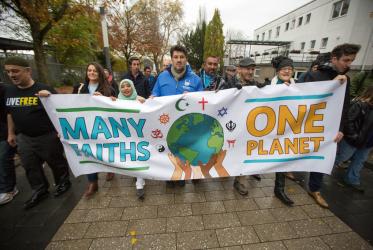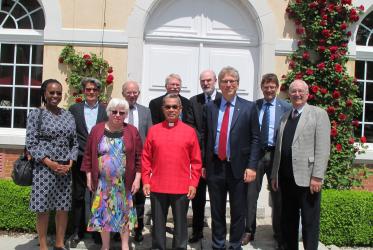Displaying 1 - 20 of 24
WCC calls for an immediate end to the current armed hostilities
24 February 2022
WCC urgently appeals for peace for the people of Ukraine
25 January 2022
Dealing with traumas and healing of wounds
04 June 2019
WCC president for Europe: “Develop local dialogue”
22 October 2018
Building bridges of faith in the HIV response
25 July 2018
COP 23 “debriefing” brings faith and ethical perspectives
23 January 2018
Ecumenical Patriarch visits WCC
24 April 2017
Grand Imam calls for collaboration against violence and poverty
06 October 2016




